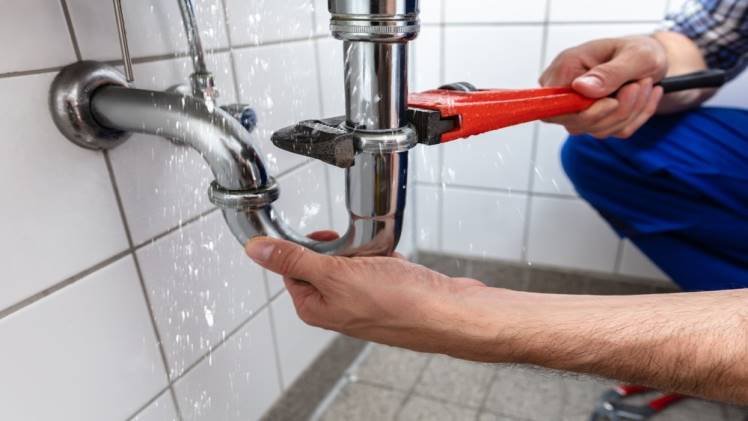When problems arise with your plumbing, it’s important to address them right away. Otherwise, they may worsen over time.
Dripping faucets, slow drains and other issues can lead to serious damage and costly repairs. Learn about common plumbing issues that don’t get addressed and how to fix them.
Rattling, banging noises when you turn on a tap or flush a toilet could indicate an active leak. A professional plumber will know how to find and repair the problem.
Leaky Faucets
A leaky faucet can waste gallons of water each day, and that extra water can put additional stress on your plumbing system. From corrosion and rust on internal steel components to worn out washers or valve seals, there are a number of things that can cause your faucet to leak.
The first step in repairing a leaky faucet is to shut off the water supply. This can be done by turning the shut-off valves located under your sink.
Once the water is turned off, you should be able to take apart your faucet and replace the necessary parts. This depends on whether you have a cartridge, ball, or ceramic-disk faucet, and may include replacing or cleaning O-rings or neoprene seals. It may also include replacing washers and valve seats or a cam washer. Once the new parts are installed, you can turn your water back on. Be sure to test the faucet for leaks before turning it back on for use.
Clogged Drains
Drain lines carry wastewater from sinks, toilets and tubs throughout your home to be funneled into a receptacle or the sewer line. If these drains get clogged, your entire household will be affected. A professional plumber can help fix a blocked drain in Canberra to save you from a lot of future problems.
A clogged drain line will cause all the fixtures connected to it to stop working. You may also notice signs like gurgling sounds, slow drainage or water pooling in your sinks and bathtubs.
You can use a plunger to try to unclog your drains. If this doesn’t work, try a wire drain snake. Most of these are fitted with a foot-pedal switch, leaving your hands free to feed the cable down the pipe. Just crank the handle and advance a few feet of the wire until you feel resistance or see progress.
You can prevent clogs by regularly running water through all your fixtures, and by encouraging family members to properly dispose of waste (like sanitary napkins, flushable wipes and grease) and avoid overfilling the sinks. You should also consider installing a water softener for your home to reduce mineral buildup that can clog pipes.
Low Water Pressure
One of the most common plumbing problems that don’t get fixed is low water pressure. This can be caused by a number of different things, including closed water valves, sediment and mineral deposits in pipes, or corrosion in faucets and showerheads.
Homeowners should first check to see if there is low water pressure in only one or two areas of their home. If this is the case, they should remove and clean their sink aerators and showerheads to clear out any mineral or dirt deposits.
If they are still experiencing low water pressure, they should check with their water supplier to see if there is a problem in their area. They can also try using their appliances at different times of the day to see if they can pinpoint what is causing the low water pressure in their home. If they cannot find the source of the problem, they should call a plumber to help solve it.
Broken Pipes
Pipes are a huge part of your home and can be a major headache when they break. This is mainly due to the fact that they are under a lot of pressure and can be exposed to extreme weather conditions. This is one of the main reasons why it’s important to have regular plumbing inspections and maintenance done to catch any potential issues before they become a full-blown problem.
Some telltale signs that pipes are bursting include damp or discolored walls, ceilings and floors. You may also notice puddles or depressions on the ground. Lastly, you might hear water sounds coming from the wall when you are not running any faucets in your home or building.
If you suspect your pipes are burst, shut off your water supply immediately and contact a plumber. To help mitigate the damage, you can use epoxy putty to create a seal over cracks or holes until a professional can take a look.

